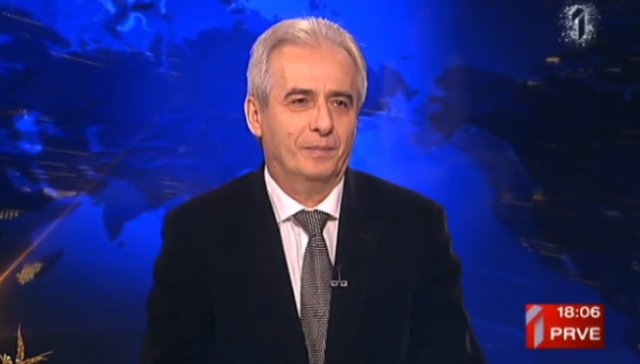"KFOR is silent - but what's Albanian army doing in Kosovo?"
"A joint exercise by the Albanian army and the so-called KSF in Kosovo and Metohija is intended to intimidate the Serb people," says Milovan Drecun.
Thursday, 21.03.2019.
11:39

"KFOR is silent - but what's Albanian army doing in Kosovo?"
Drecun assessed that this was an unacceptable demonstration of the Greater Albania policy, that Albania had no basis to send members of its army to KiM - unless they were occupiers - and that what Albania is doing is so dangerous that it almost borders on an unofficial declaration of war on Serbia."They have occupied, with the entry of their forces, a part of our territory. Neither the UN nor KFOR are reacting," Drecun told TV Pink.
He emphasized that, according to UN Security Council Resolution 1244, the only military presence in Kosovo can be that of KFOR.
"How could KFOR permit the presence of a non-KFOR military force? Why did they not prevent them? Who made the political decision to allow such a thing?," Drecun asked.
He added that the message was being sent to Belgrade that the Albanian army could help Pristina's special units complete the ethnic cleansing of Serbs, and expel all of them from Kosovo.
"A very dangerous message is being sent to Serbia, one that can bring the region into new war sufferings, the message is being sent to us that in case we try to defend the Serb people, if violence were to occur in the North, Albania would send its army to confront us, and that we can expect the Albanian army on Mt. Kopanika, where the administrative line (between Kosovo and central Serbia) runs," Drecun said.
He pointed out that the Albanian regime is actually behind the destabilization of Kosovo and Metohija, as it had been behind that of Macedonia in the past.
Drecun also said he was worried about the danger of some processes connecting, such as the announced protests by a part of the opposition in Serbia, which plans a big gathering on April 13, and the joint preparation of the Albanian army and the so-called Kosovo Security Force (KSF) for a possible storming of the north of Kosovo.
"What if some actions against the Serb people in the north of KiM coincide with the launch of violent protests in Belgrade or in other cities of Serbia? What are the secret activities of some of the leaders of (opposition alliance) SzS (Dragan) Djilas and (Vuk) Jeremic in Skopje? What was discussed with (Macedonian PM) Zoran Zaev in Skopje?," Drecun asked.
The parliamentarian also noted that Zaev has excellent relations with Ramush Haradinaj and with the Albanians, and asked whether Djilas was "some kind of mediator in the talks, or in the making of some plans."
"Why has Sulejman Ugljanin lately joined the whole story of the 'One in Five Million' (opposition) protests - who has for years had secret cooperation with the Albanians? What if some actions against Serbs in the north of Kosovo are launched at the same time as unlawful violent activities in Novi Pazar, in the south of central Serbia, and in Belgrade?," Drecun asked.
He also spoke about "a proper intelligence war that broke out in Macedonia the other day" over a dispatch the US embassy in Skopje had sent to the US State Department, that was then published by WikiLeaks.
Drecun read out the contents of the dispatch concerning a terrorist attack that took place in Kumanovo, Macedonia in 2015, and recalled that he said at the time this terrorist group had been organized by Haradinaj.
The dispatch, he continued, states that the movement of Zoran Zaev at the time wanted to overthrow the Macedonian government, and wondered what Zaev, Djilas and Jeremic could be consulting about.
"What is Dragan Djilas doing in KiM? Is he just visiting the places where the Serbs and the Serb holy places live, or is he in communication with Haradinaj? What is Ugljanin talking about with Haradinaj and (Hashim) Thaci?," Drecun asked.
He also commented on Croatian President Kolinda Grabar-Kitarovic's statement that "violent demonstrations in Serbia can destabilize the region" to say it was the ethnic cleansing which Croatia continues to perpetrate that is destabilizing both Serbia and the region.
"Croatia's support to Albanian terrorists, the so-called KSF, destabilizes the entire region. Croatia is the one trying to destabilize Serbia without caring for the region's stability - but it will not succeed," Drecun said.
Some countries, as well as individuals, are preparing to destabilize Serbia in an attempt to stop its economic development, while President Aleksandar Vucic is trying to make a historic economic step of bringing Volkswagen to Serbia, Drecun concluded.













































Komentari 59
Pogledaj komentare